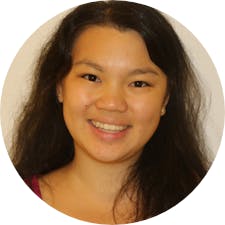A recent study conducted by the Duke Alumni Association found a high correlation between satisfaction with the undergraduate social experience and future alumni donations. This alone has pushed the Housing and Residential Life to scramble to put together a new housing model.
"We've heard current undergraduate students repeatedly say that they want to see change in the housing and social scene, but those experiences were just stories and weren't backed by any data, so we couldn't trust their credibility. It was really seeing that there was a high return on investment on social life that convinced us."
In the future, the University will put out a RFP (request for proposal) at the end of each academic year. Any group interested in applying for a social block must submit a detailed proposal that includes a list of officers, a budget for the year, and a specific list of social events the group plans to hold throughout the year. They are expected to follow this calendar, and must go through an extensive review process to make any changes.
The first group to react to the proposed changes was the American Enterprise Institute's executive council, which issued a strong statement in support of the policy.
"Let's face it, the quality of Duke's housing and social scene sucks,” the statement starts off. “People have said for years that independent houses lack community, but nothing has changed because no better alternative has come in to replace it. We need to inject more competition into the model. Only the best social groups should be allowed to continue. The principles of the free market are universal and have helped make America the greatest country in the world. Let's apply it to Duke's social scene. People must have the right of association. That's the first amendment."
A representative from Duke Students for Housing Reform immediately noted that the statement ignores the fact that independent houses consistently have had to work with smaller budgets, have students who likely come from poorer families on average and must abide by stricter policies. The council thus far declined to comment in response.
Other proposals that the AEI board put forward include providing dues vouchers for low income students in Greek life, which would allow any student to join any social group, regardless of the zip code in which they grew up or their socioeconomic status (of course, only students who could get into the groups and can socially fit in would be eligible for the vouchers). The group has also proposed increasing the resident to resident assistant ratio, and the resident to social chair ratio, in order to cut down on operating costs and to maximize efficiency.
In order to ensure that groups are deserving of their sections, each group must face stringent accountability standards. To help quantify their success, the University introduced a new metric: a standardized test, developed by university officials, many of whom haven't stepped in a dorm common room since their own college days. Every individual in the group will have to take the test at the beginning and the end of each year, and they must demonstrate personal growth.
Of course, test scores can’t measure everything. That's why HRL also had the Statistics department build a model to calculate a “value-added” score to capture how much each student contributed their peers’ social development. The model uses complicated methodology that really only those with a PhD in statistics can understand, and is norm-referenced by a survey from students from our peer institutions in the "Ivy Plus" category, deemed as such by The New York Times.
The model will be consistently applied, whether it’s for a block of six, or for a new group of 100. The creators insist that there is no possibility that the model has too much variation for to make an accurate judgement.
"I mean, we can't exactly explain why your social group sucks if you actually wanted to improve, but we can tell you that your group isn’t effective. And in some cases, your group might not even suck, but we need to see improvement. If you got a good, cohesive group together where everyone scored 100 percent on the pre-test, then our models predict that they need to score 103 percent on the post-test in order to demonstrate improvement."
If the resident assistant and the social chair are deemed not to have a statistically significantly impact on their peers for two years in a row, they are required to leave the section.
Many students have protested the changes, saying that education and socialization should happen naturally and that many of the most important social experiences they've had were not in pursuit of a test.
In response, the University issued a statement saying that data has the potential to revolutionize social life at Duke, and they insist that the system is designed to help breed innovation. Any student is welcome to apply for funding to start their own social group.
Already, there are students and outside investors brainstorming ideas. Many of the likely groups will mimic current selective living groups, including ones centered around arts, entrepreneurship, languages, community service and social justice. Other groups being discussed include "white flight" groups, as well as groups specifically designed for low income students and students of color.
Duke University officials noted that if students are frustrated with the model, they are free to leave the school and return to their local charter school.
Amy Fang is a Trinity sophomore. Her column, "fangirling," runs on alternate Wednesdays. Editor's note: this is a satirical column.
Get The Chronicle straight to your inbox
Sign up for our weekly newsletter. Cancel at any time.

Amy Fan is a Trinity senior. Her column, "fangirling," runs on alternate Thursdays.
